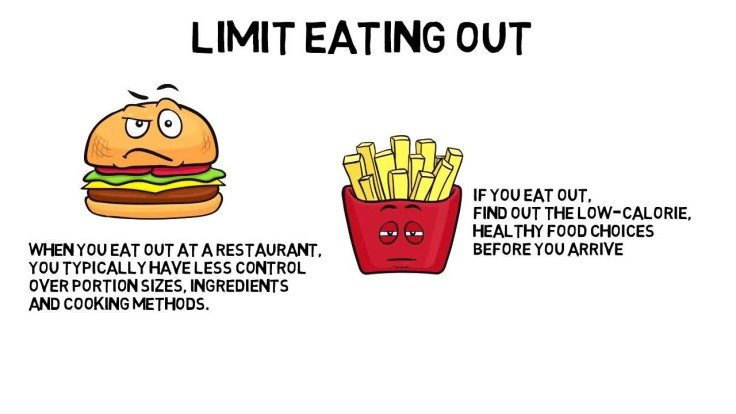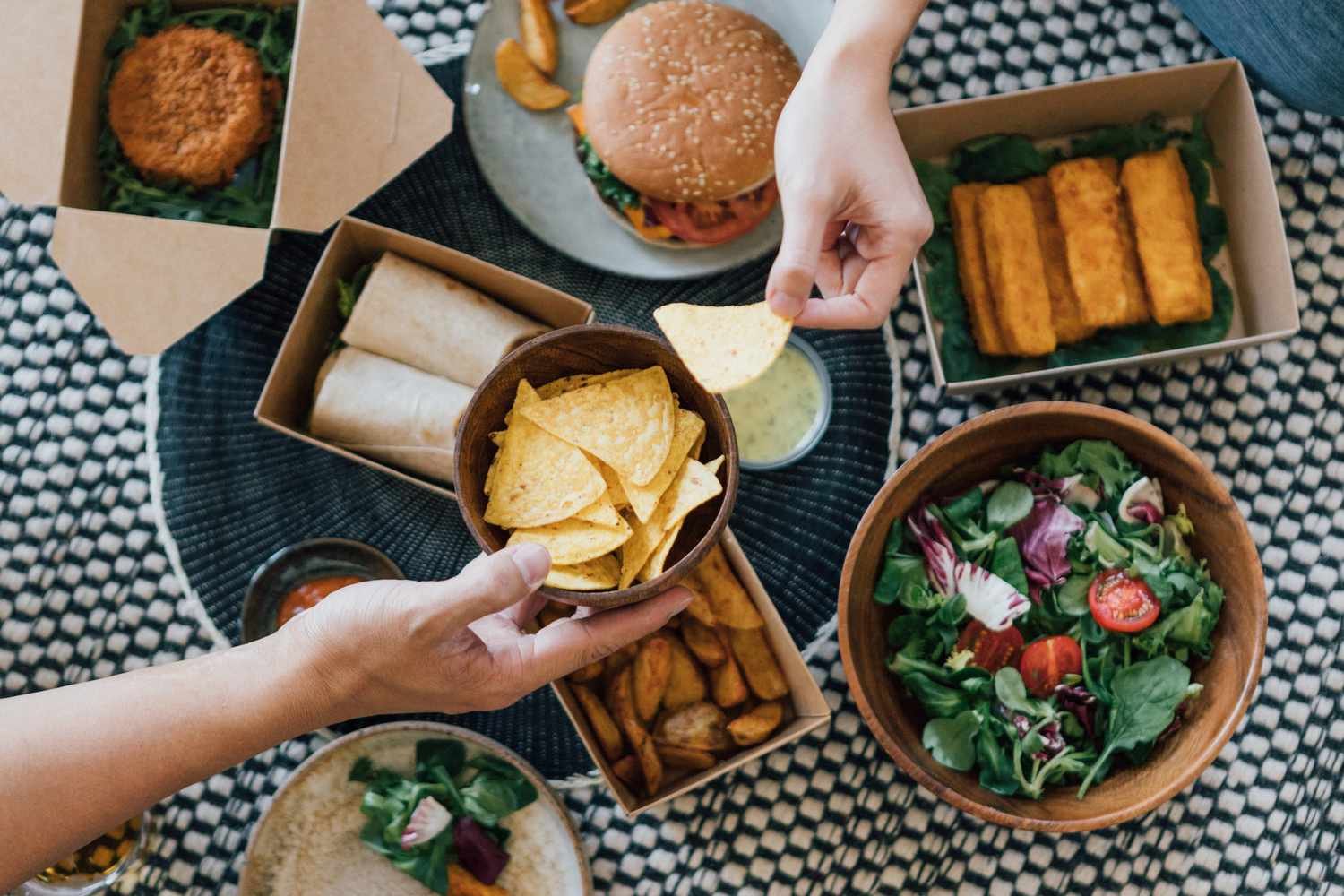Hey there! Looking to save some money and maintain a healthy lifestyle? Well in this article ‘Master Home Cooking: Easy Ways to Reduce Restaurant Visits’, we’ve got some tips for you on how to limit eating out. We all love the convenience and deliciousness of dining out, but frequent visits to restaurants can take a toll on both our wallets and our waistlines. So, let’s explore some easy and practical ways to cut down on eating out without sacrificing enjoyment or taste. Get ready to become a master of home-cooked meals and take control of your finances and health!

Benefits of Limiting Eating Out
Healthier Eating Habits
When you choose to limit eating out, you have more control over the ingredients and preparation of your meals. This allows you to make healthier choices and avoid the excess calories, unhealthy fats, and added sugars often found in restaurant dishes. By cooking at home, you can incorporate more fruits, vegetables, whole grains, and lean proteins into your diet, which are essential for maintaining good health.
Financial Savings
One of the key benefits of limiting eating out is the amount of money you can save. Dining at restaurants can be quite expensive, especially if you eat out frequently. By cooking meals at home, you can significantly reduce your food expenses and allocate that money towards other important areas of your life, such as savings, travels, or hobbies.
Control over Ingredients
When you cook at home, you have complete control over the ingredients that go into your meals. This means you can choose high-quality, fresh ingredients and avoid additives, preservatives, and artificial flavorings commonly found in processed or packaged foods. By having control over your ingredients, you can cater to any dietary restrictions or preferences you may have, ensuring you are nourishing your body in the best way possible.
Portion Control
Restaurants often serve larger portion sizes compared to what you would eat at home. This can lead to overeating and consuming more calories than you actually need. By limiting eating out and preparing meals at home, you have the opportunity to practice portion control and listen to your body’s cues of hunger and fullness. This can be particularly beneficial for weight management and overall health.
Tips for Limiting Eating Out
Meal Planning
One of the key strategies for limiting eating out is meal planning. By setting aside a specific time each week to plan your meals, you can ensure that you have all the necessary ingredients on hand and eliminate the temptation to order takeout or dine at a restaurant. Plan your meals in advance, make a detailed grocery list, and prepare some meals ahead of time to save even more time during busy weekdays.
Cooking at Home
Cooking at home is not only a way to save money but also a creative and fulfilling activity. Experiment with new recipes, try different cooking techniques, and don’t be afraid to make mistakes. Cooking at home gives you the opportunity to nourish yourself and your loved ones while enjoying the process and learning new culinary skills along the way.
Packing Lunches
Bringing your lunch to work or school is an effective way to limit eating out during the day. By packing your own lunch, you have full control over the ingredients and portion sizes, ensuring that you are making healthy choices and avoiding the often unhealthy and calorie-dense options available at cafeterias or nearby restaurants. Invest in portable containers and plan your lunches in advance to make the process easier and more convenient.
Setting Realistic Goals
When it comes to limiting eating out, it’s important to set realistic goals that work for your lifestyle. Start by gradually reducing the frequency of eating out and gradually incorporating more home-cooked meals into your routine. Don’t be too hard on yourself if you slip up occasionally. Remember that it’s all about progress, not perfection. Celebrate small victories along the way and be proud of yourself for making healthier choices.
Importance of Socializing without Eating Out
Alternative Activities
Creating memories and bonding with friends and family doesn’t always have to revolve around restaurant outings. There are plenty of alternative activities you can enjoy together that don’t involve eating out. Take a hike, go for a bike ride, have a picnic in the park, or organize a game night at home. These activities not only provide an opportunity to socialize but also contribute to a healthier and more balanced lifestyle.
Hosting Gatherings at Home
Instead of meeting friends or family at a restaurant, consider hosting gatherings at your own home. This allows you to have more control over the menu and ensure that healthier options are available. You can try new recipes, showcase your cooking skills, and enjoy quality time with loved ones in a cozy and comfortable environment.
Outdoor Picnics and Potlucks
Outdoor picnics and potlucks are a great way to socialize without eating out. Encourage everyone to bring a dish and have a shared meal in a picturesque park or backyard. This way, you can sample a variety of homemade dishes while enjoying the fresh air and connecting with others. It’s a fun and cost-effective alternative to dining at a restaurant.
Challenges of Limiting Eating Out
Lack of Time
One of the biggest challenges in limiting eating out is finding the time to plan and prepare meals. In our busy lives, time can often feel limited, and it’s easy to resort to the convenience of eating out. However, with proper planning and time management, it is possible to prioritize cooking at home. Consider using weekends or evenings to meal prep and cook in larger batches, so you have convenient and healthy meals ready to go during the weekdays.
Cravings and Temptations
Cravings for certain restaurant foods or the convenience of takeout can be a significant challenge when trying to limit eating out. It is important to acknowledge these cravings but also find healthier alternatives to satisfy them. Look for recipes or recreate your favorite restaurant dishes at home, using fresh ingredients and healthier cooking methods. Over time, you may find that your palate adjusts and you no longer crave the unhealthy options.
Social Pressure
It’s common to face social pressure to eat out, especially when friends or coworkers suggest going to a restaurant or ordering takeout. It’s essential to communicate your goals and reasons for limiting eating out with those around you, so they understand and support your choices. Suggest alternative activities or venues where you can still socialize without compromising your health and financial goals.
Limited Culinary Skills
For some individuals, limited culinary skills can pose a challenge in cooking at home and limiting eating out. However, it’s important to remember that cooking is a skill that can be learned and improved over time. Start with simple recipes and gradually progress to more complex dishes. Enroll in cooking classes or watch instructional videos online to expand your culinary knowledge and gain confidence in the kitchen.

Healthy Eating Options and Alternatives
Healthy Recipe Websites and Apps
There is a wealth of resources available online and in the form of mobile apps that can assist you in finding healthy recipes and meal ideas. Websites such as Pinterest, AllRecipes, and Food Network offer a vast collection of nutritious and flavorful recipes suitable for every taste and dietary preference. Additionally, meal planning apps like Mealime and Yummly can help you plan your meals, create shopping lists, and discover new recipes.
Choosing Healthier Restaurant Options
While the goal is to limit eating out, there are times when you might find yourself at a restaurant. In such instances, make an effort to choose healthier options from the menu. Look for dishes that are grilled, steamed, or baked instead of fried. Opt for salads or vegetable-based dishes as your main course. Additionally, ask for dressings and sauces on the side to control the amount you consume. Making mindful choices when dining out can still contribute to your overall health goals.
Meal Delivery Services
If you struggle with lack of time or limited culinary skills, meal delivery services can be a fantastic resource. These services provide pre-portioned ingredients and step-by-step recipes delivered right to your doorstep. Meal delivery services cater to various dietary preferences and can help you discover new flavors and cooking techniques without the hassle of grocery shopping and recipe selection. They are a convenient way to enjoy healthy, home-cooked meals without the stress of planning and preparation.
Experimenting with Different Cuisines
Cooking at home allows you to explore and experiment with different cuisines from around the world. Trying out new recipes and flavors can make the experience of limiting eating out more exciting and enjoyable. Explore recipes from Mediterranean, Asian, Mexican, or Middle Eastern cuisines, and discover the unique combinations of spices and ingredients that make these cuisines so flavorful. Incorporating variety into your meals can help you stay motivated and satisfied with your home-cooked meals.
Impact of Limiting Eating Out on the Environment
Reducing Food Waste and Packaging
When you cook at home, you have more control over portion sizes, which can help reduce food waste. Leftovers can also be repurposed into new meals, minimizing the amount of food that ends up in the trash. In addition, limiting eating out means reducing the consumption of single-use packaging, such as takeout containers and disposable utensils. By choosing to cook at home, you can contribute to reducing your overall environmental footprint.
Supporting Sustainable Agriculture
Choosing to cook meals at home allows you to make conscious choices about the ingredients you use. By selecting locally sourced and organic produce, you can support sustainable agriculture practices that prioritize soil health, water conservation, and biodiversity. This helps promote a more sustainable food system and reduces the environmental impact associated with large-scale industrial farming.
Reducing Carbon Footprint
The production and transportation of food can contribute significantly to carbon emissions and climate change. By limiting eating out, you can reduce the demand for food that is transported long distances or prepared using energy-intensive methods. Opting for fresh, seasonal ingredients and preparing meals at home helps lower your carbon footprint and promotes sustainable food consumption.

How to Stay Motivated to Limit Eating Out
Tracking Progress and Celebrating Milestones
Keeping track of your progress and celebrating milestones can help you stay motivated on your journey to limit eating out. Set goals and track your success over time. Whether it’s the number of days or meals cooked at home, weight loss, or improvements in health markers, regularly acknowledging and celebrating your achievements will keep you motivated and reinforce the positive impact of your efforts.
Rewarding Yourself with Non-Food Treats
Instead of using food as a reward for limiting eating out, find non-food treats that you enjoy. Treat yourself to a bubble bath, indulge in a good book or movie, or pamper yourself with a spa day. By turning to non-food rewards, you can reinforce positive habits and build a healthier relationship with food.
Finding Support and Accountability
Enlist the support of friends, family, or co-workers who share similar goals or who can provide encouragement along the way. Consider joining a cooking class or seeking out online communities where you can connect with others who are also limiting eating out. Having a support system and being held accountable can greatly increase your chances of success.
Reflecting on Personal Values and Goals
Take time to reflect on your personal values and goals related to health, finances, and the environment. Remind yourself why you have chosen to limit eating out and how it aligns with your vision for a healthier and more sustainable lifestyle. This introspection can provide the necessary motivation to stay on track and make conscious choices that support your overall well-being.
Conclusion
Limiting eating out brings numerous benefits, including healthier eating habits, financial savings, and control over ingredients and portion sizes. By incorporating meal planning, cooking at home, and finding alternative social activities, you can successfully reduce your reliance on restaurants. While challenges may arise, such as lack of time or social pressure, they can be overcome with proper planning and a determined mindset. Incorporating healthy eating options and exploring different cuisines can keep your meals exciting and enjoyable. Moreover, the impact of limiting eating out extends beyond personal health and finances, positively affecting the environment through reduced food waste, support for sustainable agriculture, and lower carbon emissions. By staying motivated, tracking progress, and reflecting on your values, you can successfully limit eating out and embrace the many benefits that come with it.


